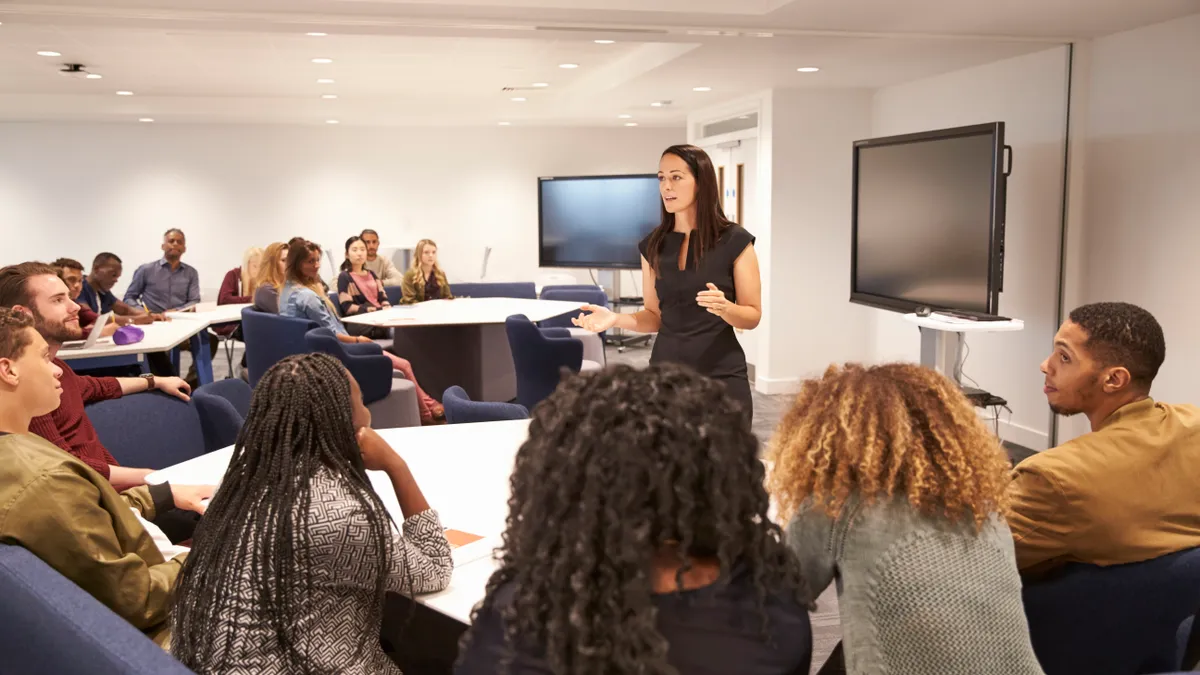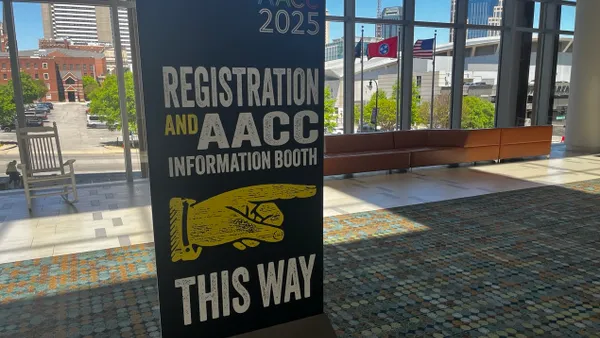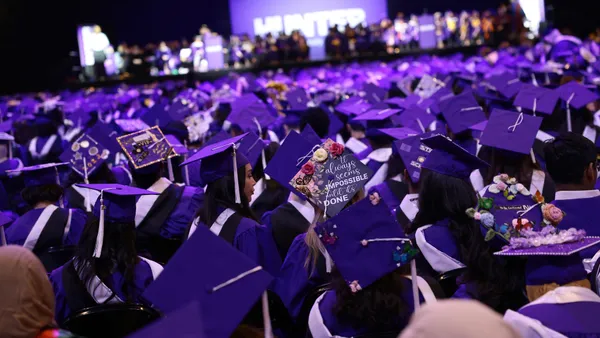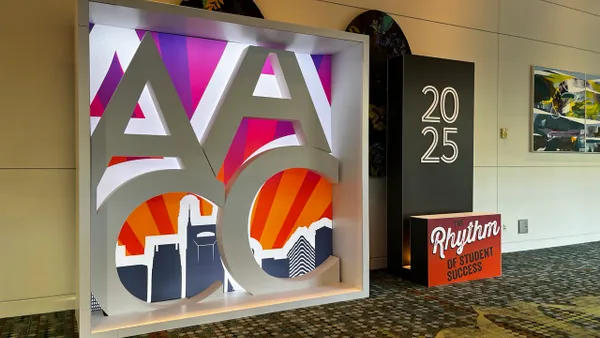Jack Calareso is a senior consultant at Hyatt-Fennell Executive Search. He was president of five colleges, most recently at Laboure College in Milton, Massachusetts.
As we move through the ups and downs of the pandemic, most colleges continue to focus on enrollment, budgets and revenue in the hope that they will survive and have a successful academic year.
But maintaining fiscal stability, addressing physical and mental health, and supporting online learning is not leadership but rather crisis management. We need to act with the kind of leadership that is proactive and more concerned with issues related to the common good.
I implore higher education leaders to reflect on the following questions: Are your students maturing and developing their values? Will they be ready to confront societal challenges, whether they want to or not? Have their colleges and universities served them well?
Will you as academic leaders accept and embrace this true leadership challenge?
You must schedule the time for conversations about racism, prejudice, respect, democracy, human and civil rights and environmental protection. Attendance at these conversations must be required, not optional; regularly scheduled, not occasionally offered; and most importantly, they must be factual, objective and unbiased. We should not tell our students how to think or what to think. We can and should demand, however, that they take the time and the opportunity to think.
To serve students will take more than rhetoric and even more than leadership. It will take resources. You likely do not have the right people on your campus to lead these conversations objectively and skillfully. Let's start with who should not lead these discussions:
- Those in power roles at the institution. For example, I would be and should be disqualified. While I might try to be objective, accepting and affirming, I could not disguise or leave behind my role as a former college president, provost, dean and department head.
These roles of power and judgment would make the dialogical playing field uneven. Even if I said and believed that I was not acting as the president, no student could or should believe me.
Power roles will necessarily exclude student life personnel who make decisions over behavior and residence life, senior faculty, and department heads who influence tenure, promotion or continued employment.
- Those with functional bias in their roles. This excludes anyone who is employed to advocate for a position or known for their values and convictions based on position, discipline, research or community engagement.
This would exclude diversity officers, student life co-curriculum leaders and many faculty members. Diversity officers are hired to advocate for their positions and priorities. While faculty need the protection of academic freedom to bring integrity to their scholarship and teaching, this does not correlate with leading these critical student sessions. And student life professionals are those on campuses most often passionate about their beliefs and views.
- Anyone who might be openly judgmental in learning about students' true values and ideas. If this program is successful, students will share and discuss openly and fully. They should not be inhibited because of who is in the room, and the leader in the room should not be put in an awkward position or inherently violate students' privacy rights.
So, who is left on campus? Likely no one. You will need to dedicate new resources.
Leaders of these discussions should be independent individuals skilled in facilitating discussions and available for follow-up conversations with individual students and small groups. They need to have counseling skills to help students work through the unavoidable conflicts and emotions.
These leaders also need the time to research and study. They will need to learn about your students and must immerse themselves in the issues. They need not be knowledgeable about every issue, every cultural bias or every historical perspective that will be raised. Their primary goal is to successfully engage students in open and honest discussion and reflection.
These leaders will also need a budget for support staff to organize this "citizenship project" and secure resources for students. Resources will include materials and technology as well as experts who can provide content and context. Resources will necessarily include the costs of travel to experience history and the meaning of citizenship. At a minimum, for example, every student might need to travel to Washington, D.C., to experience the heart of our democracy with visits to historical sites such as the National Museum of African American History and Culture and the Holocaust Memorial Museum.
President Harry Truman once stated, "In periods where there is no leadership, society stands still."
We have ample evidence that we cannot afford for society to stand still. We cannot afford to focus on management and forfeit the responsibility to lead our students.
I also know that the greatest minds and the most able leaders can be found in the repository known as American higher education. I urge you to make citizenship and student development your top priority. I guarantee that it is the best use of your time and resources. Your students need this, and the world needs this.












